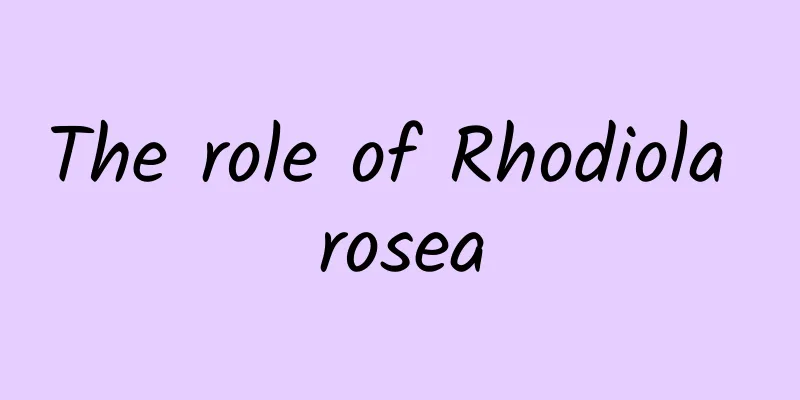The role of Rhodiola rosea

|
Everyone is familiar with the Chinese medicine Rhodiola rosea. It has a history of application of thousands of years. Rhodiola rosea can be used as a single Chinese medicine, or as an important Chinese medicine in many classic prescriptions. With the development of society and the advancement of science and technology, people are more and more aware of the medicinal value of Rhodiola rosea, and have developed many Chinese patent medicines with Rhodiola rosea as the main raw material. Many people do not have a comprehensive understanding of the role of Rhodiola rosea. According to ancient medical records, Rhodiola rosea was first used as medicine by the people of the Tibetan Plateau to strengthen the body and resist the damage to the human body caused by the harsh weather in Tibet. It has gradually spread throughout China, and now many people use Rhodiola rosea to make wine for the sake of health. Some reports indicate that Rhodiola rosea has anti-cancer and anti-mutagenic properties. In addition, Rhodiola rosea can directly inhibit the growth and spread of lung cancer cells. Other effects of Rhodiola rosea include: 1. Anti-hypoxia and anti-fatigue: What are the effects and functions of Rhodiola rosea? It can quickly increase the ability of hemoglobin to bind oxygen, improve blood oxygen saturation, reduce the body's oxygen consumption, increase exercise endurance, and recover from fatigue after exercise. 2. Antibacterial effect: Rhodiola rosea contains a large amount of scopolamine, kaempferol and other antibacterial and anti-inflammatory ingredients; it also contains the highest content of tannins and has astringent properties. It plays a protective role on the mucous membrane surface, preventing excessive secretion and stopping excessive bleeding. It is effective for cough and sputum caused by lung inflammation and increased leucorrhea in women. 3. Anti-oxidation, anti-diabetic, anti-pneumonia and anti-asthma: In traditional medicine, Rhodiola rosea is also used to treat diabetes. Clinically, Rhodiola rosea can significantly fight against pneumonia and asthma. It is effective for allergic asthma. Generally, adults can take 15-30 grams per day depending on the condition, decocted in water and taken orally. One course of treatment is half a month, and the course of treatment can be increased as needed. The above is a detailed introduction to the effects of Rhodiola rosea. You can try to use Rhodiola rosea at home, use it to make wine, use it to cook medicinal food, and improve your physical fitness. Since everyone is not very clear about their own physical fitness, you can start with a small dose when using it. Increase the dose gradually to find the dose that works for you. |
<<: The efficacy and function of Perilla seeds
Recommend
If your memory is "faulty" and your mood is unstable, it may be that your brain needs maintenance
Everyone knows that memory, sleep, emotions and t...
"The strong never complain about the environment"! The "lone hero" in the desert, deep sea, and life forbidden zone
One summer day in 1965, the sun was scorching, th...
The first red warning for heavy rain this year! The "violent plum rain" in the middle and lower reaches of the Yangtze River continues to exert its force. How to prevent and avoid risks?
Just now, the Central Meteorological Observatory ...
The difference between mugwort and wormwood
In our daily life, there are many plants that loo...
They took the dry air guns away, leaving behind 52 steel arteries
In 2021, there were continuous important news abo...
The efficacy and function of sorrel
Traditional Chinese medicine is very helpful in t...
How to deal with snowstorms?
On December 9, rain and snow "moved" to...
The efficacy and function of Pai Gu Ling
Do you know about Pai Gu Ling? It is a common med...
Let’s talk about it from a mathematical perspective: why do people who are addicted to gambling always end up going bankrupt?
In the recent hit drama "Crazy", there ...
The efficacy and function of white bell
White bell seed is a very nutritious and precious...
Fish that don't work hard will be punished by their leaders | Natural Trumpet
1) India suffers from high temperatures, nearly 4...
The effect of soaking American ginseng in water on sexual function
Recently, many male friends have generally experi...
What can't be eaten with wolfberry?
I believe that many of my friends have had the ex...
Do you know how hard passion fruit works to be eaten by you?!
Recently, eight new passion fruit varieties devel...
During the spring ploughing season, what are the fire safety hazards associated with the use of fire in rural areas?
Spring Ploughing Season What are the fire safety ...









